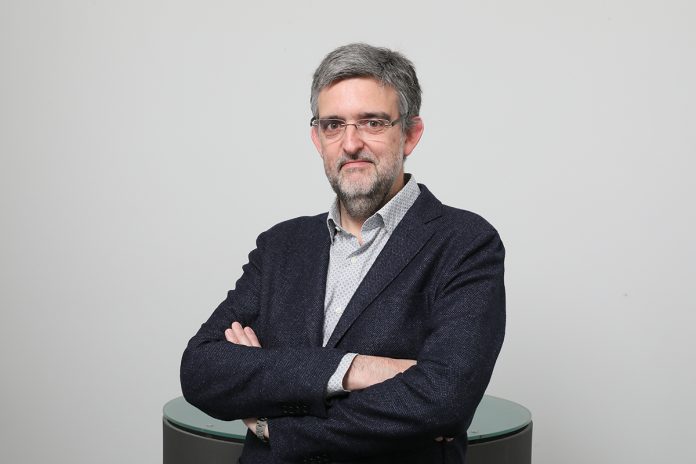Ignacio Pagonabarraga, Director of CECAM, lifts the lid on the field of computer simulations and the crucial role they have played in the development of science since the second half of the last century
Molecular modelling and computer simulations have played a fundamental role in the development of science since the second half of the last century. They have opened a new venue in our understanding of natural phenomena and in our ability to address basic
scientific challenges. The proposal, understanding and foundation of new algorithms to analyse the emergence of the collective behaviour of many-body systems has required the development and use of new concepts and tools. Hence, the foundations of this new area of theoretical physics have evolved naturally in close collaboration with areas of mathematics.
This synergetic interaction across scientific disciplines is still a vivid area of multidisciplinary collaboration and we can expect that it will continue to develop and bear new fruit.
The potential created by computer simulations has benefited because of the fast increase of computing power since World War II, which has spanned some 18 orders of magnitude. This is not just a quantitative change – it has led to qualitatively new applications for computers in science and technology. For example, in the bottom-up prediction of material properties, simulations are already having an impact on the development of materials with unique electronic or magnetic properties. In silico, computer-aided design is increasingly important in drug design and delivery.
Computer simulations as a predictive tool
As computer simulations have moved from being an academic field of research to a predictive tool, the development of novel algorithms and the continuous training of a new
generation of experts is of crucial importance for progress in growing number of areas ranging, e.g. from the design of `intelligent’ materials to drug discovery and delivery. Furthermore, increasingly, information from simulations is harvested through machine-learning techniques and the harnessing of quantum phenomena ranging from simple entanglement to quantum computing is having an ever-larger impact.
The current challenges to reach exascale computing, the new generation of High Performance Computing (HPC) for improving materials, optimising complex electricity networks or to understand the function of nature from the atomistic length up to large scales, such as geological formation or ecological systems, all pose new challenges to scientists, who need to adapt their traditional approaches to keep up with the pace of computer performance evolution. All components, including hardware, software, program design and algorithms have to be co-designed, i.e. developed in a concerted action.
What about future developments?
Although the new opportunities for future developments awaiting beyond exaflop computing cannot yet be answered, computers will definitely play a very important role and continue serving to improve life, providing insight into a global context and optimising traffic in complex networks. New technologies, like quantum computing or neuromorphic computing, are expected to be developed to contribute productively to the working environment of current supercomputers.
Whilst faster computers have enabled this outstanding and fast development, both in terms of how science is approached and understood, and how computational science has become a practical, competitive predictive tool, the most important advances have been (and still are) in new algorithmic developments. It is in this area that the Centre Européen de Calcul Atomique et Moléculaire (CECAM) plays a role that is not simply world-leading but unique.
CECAM, founded in Paris in 1969 by Dr Carl Moser, is an organisation devoted to the promotion of fundamental research on advanced computational methods and their application to important problems in frontier areas of science and technology.

As the name suggests, the traditional focus of CECAM has been atomistic and molecular simulations, applied to the physics and chemistry of condensed matter. Over the last twenty years, powerful advances in computer hardware and software have supported the extension of these methods to a wide range of problems in materials science, biology, engineering, applied mathematics and medicinal chemistry.
What will happen to the importance of computer simulation?
CECAM has always been very attentive to the developments and challenges in new scientific areas and has played an active role to foster them to the point that computer simulation is now considered to be a third way of doing science; a new way of linking theory and experiment. As the importance of simulation continues to grow, CECAM continues evolving its scope and structure to address these changes. For example, currently, CECAM communities are particularly interested in multiscale modelling of phenomena from a quantum to a constitutive equation description, and we also recognise the importance of new statistical techniques that can extract relationships directly from data. To cover this broad range of activities, we have established 17 CECAM nodes across Europe to work alongside the headquarters in Lausanne.
CECAM activities, across all of the nodes, include the organisation of scientific workshops in emerging areas; specialist schools at the graduate and postdoctoral level; brain-storming and problem-solving events; workshops on software development; collaborative research projects for Europe and beyond; and the sponsorship of an international visitors’ program. The outstanding quality of the network has led to several successful projects in research and infrastructure.
One such program is currently running: The Horizon 2020 Centre of Excellence for Computing Applications E-CAM. Past projects include the European Science Foundation Networks (MOLSIMU), the EU-COST Networks (SIMBIOMA), and the AtoSim Erasmus Mundus Master program for graduate training.
*Please note: This is a commercial profile











